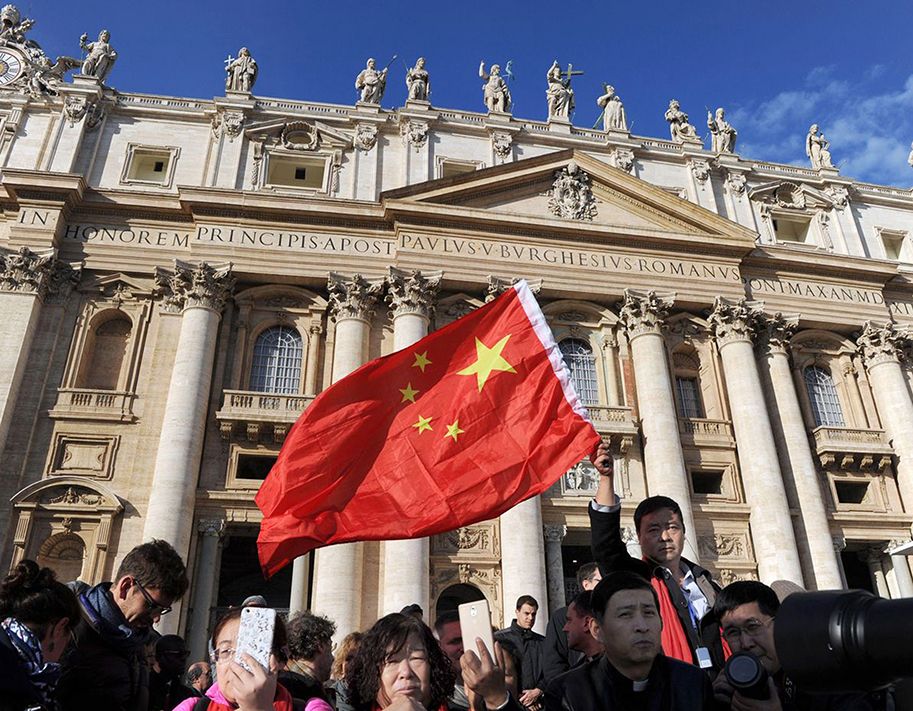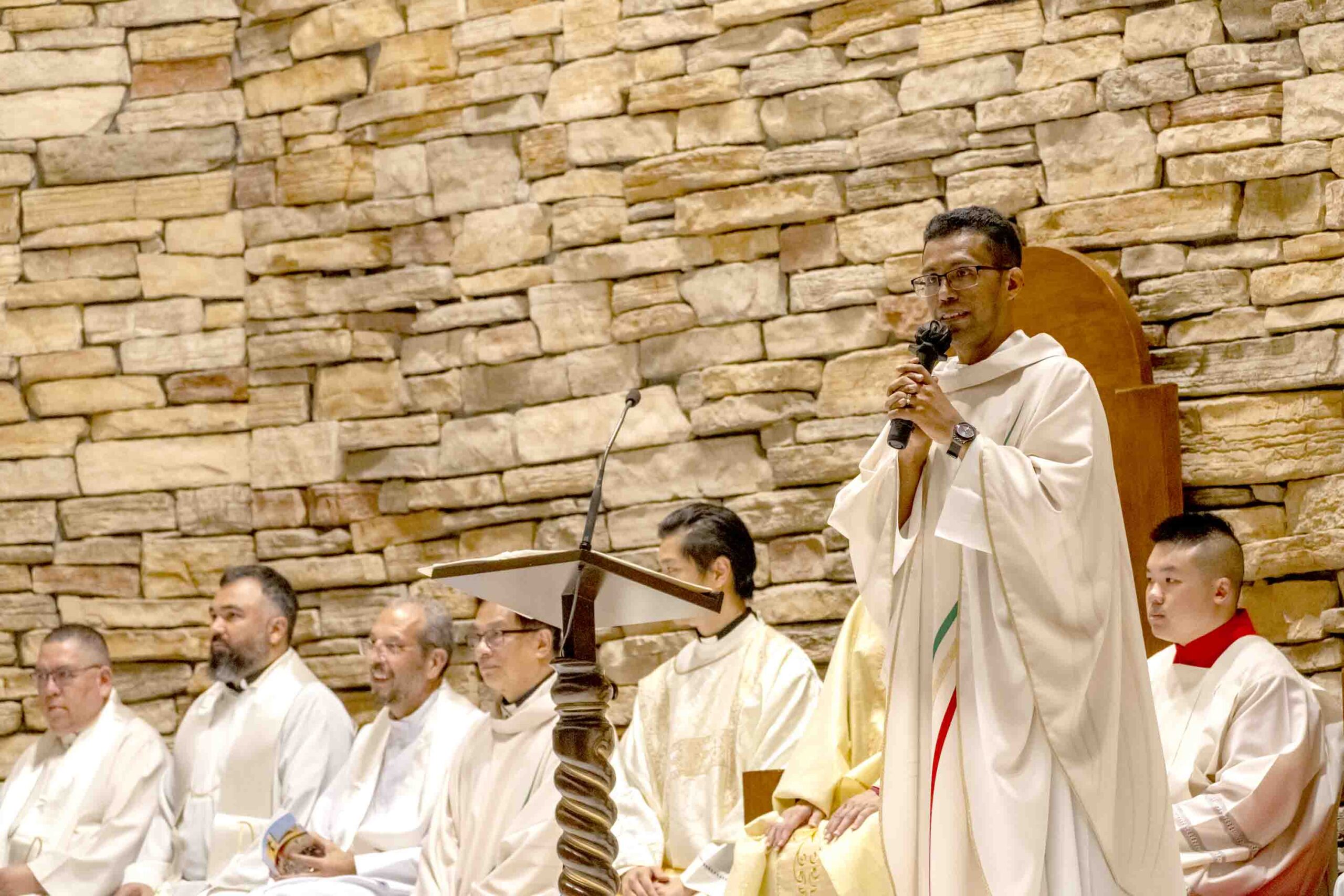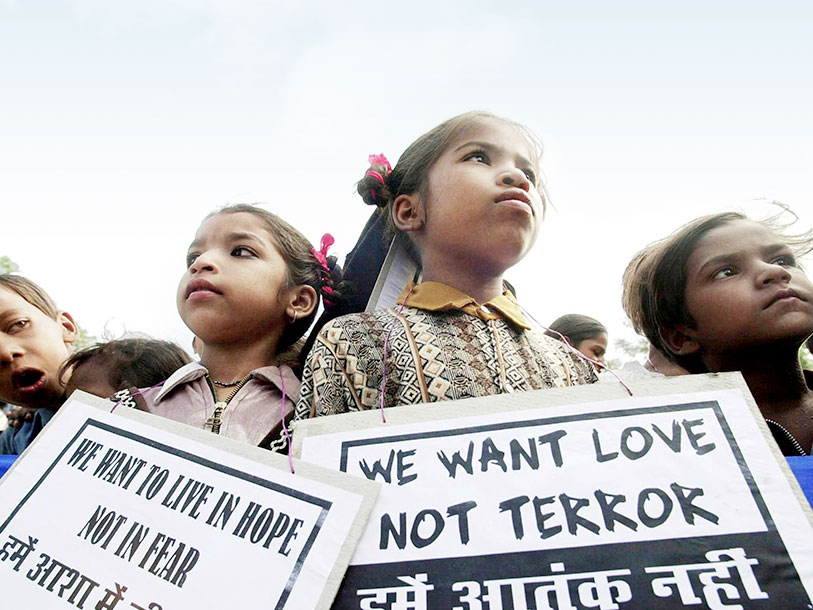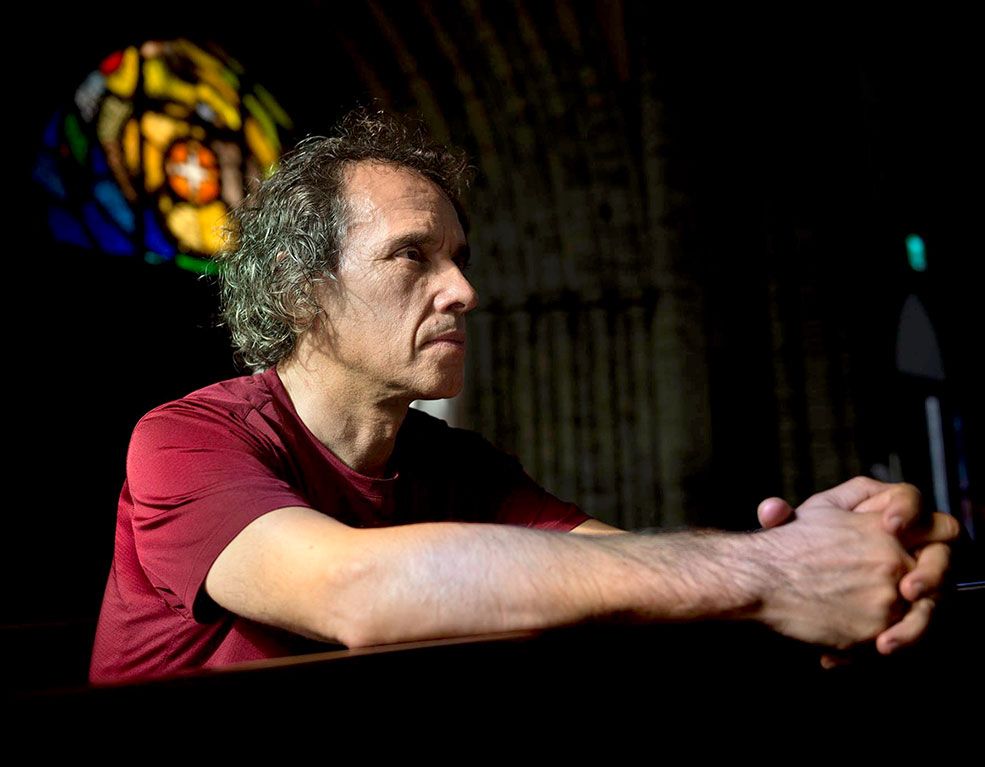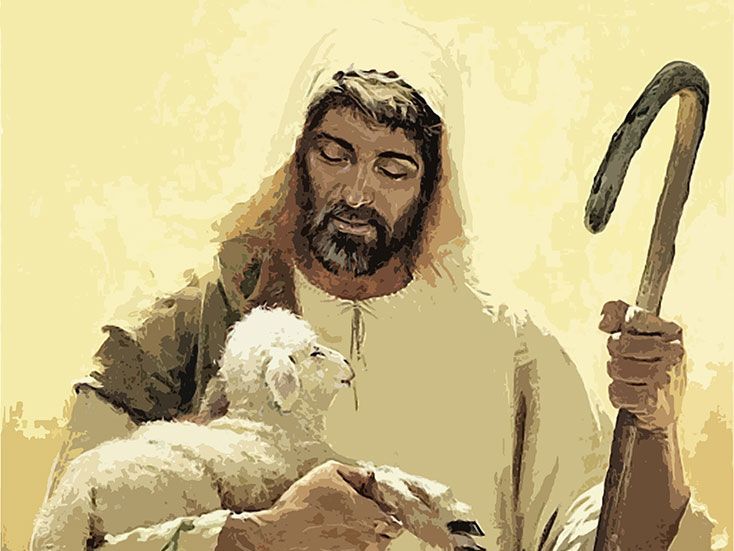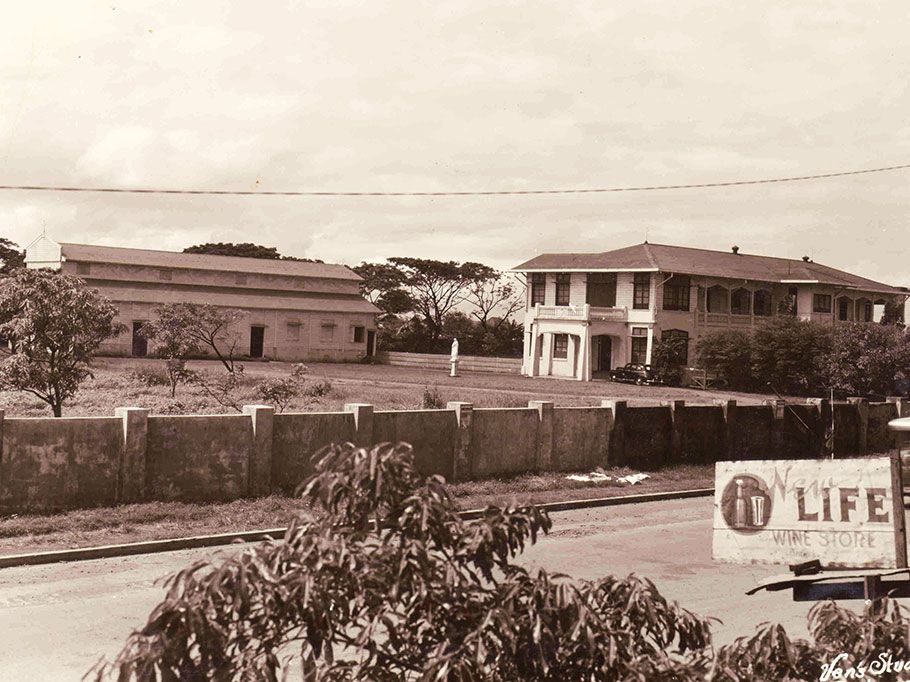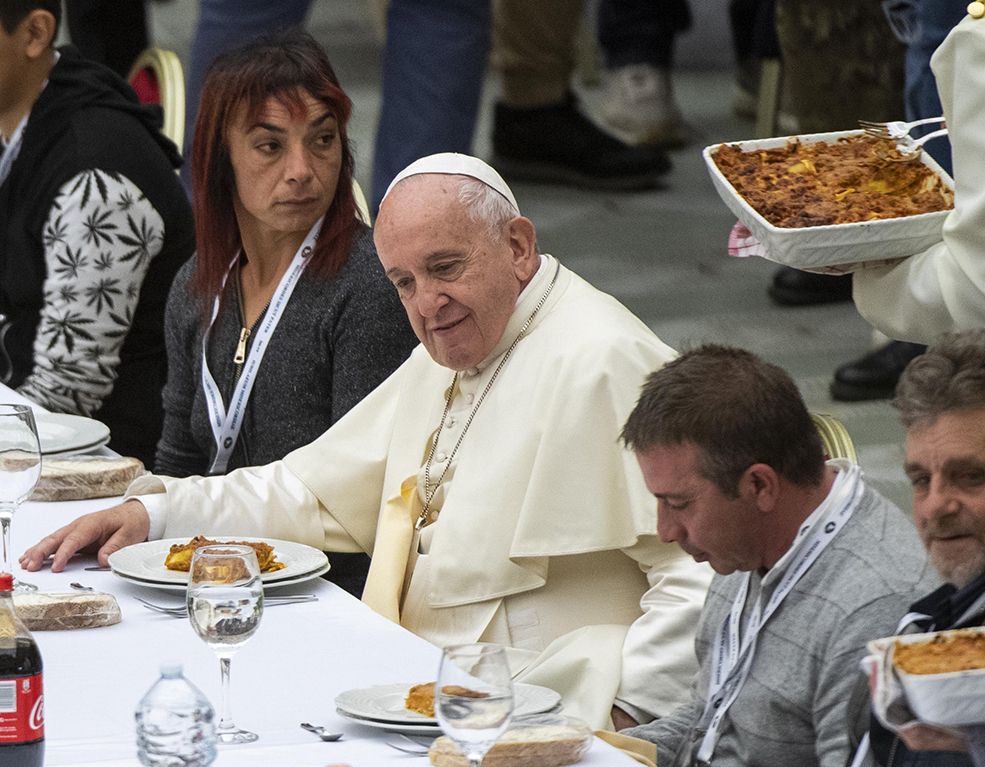This is the first word I would like to tell you: joy! Don’t be ever men and women of sadness! A Christian cannot be a sad person! Long faces cannot proclaim good news! Ours is a joy which comes from having met with a Person: Jesus, who is in our midst,” these are Pope Francis’ words on Palm Sunday, March 24, only a few days after his election and are like the motto of his pontificate.
Speaking to the thousands of seminarians and novices, on July 8, he said: “Every Christian, especially you and I, is called to be a bearer of this message of hope that gives serenity and joy: God’s consolation, his tenderness towards all.” Then, leaving out the paper and continuing in a spontaneous way, the Pope told the future priests and nuns to keep “freshness and joy” in their lives, and took to task seminarians and novices who are “too serious, too sad.” “Something is not right here. There is no sadness in holiness,” he said.
“A true Christian is a person of joy. There are people who masquerade as Christians, and sin by being excessively superficial or overly rigid, forgetting that a true Christian is a person of joy who rests their faith on the rock of Christ. Some think they can be Christian without Christ; others think being Christian means being in a perpetual state of mourning. The former have a superficial happiness. The others do not know what Christian joy is. They do not know how to enjoy the life that Jesus gives us.”
These words that the Pope delivered in one of his spontaneous homilies in the chapel of Santa Martha makes one think of the movie “Babette’s Feast,” a movie very dear to Pope Francis, where the French refugee, Babette, an accomplished cook, fills with joy and tolerance her stern Calvinist hosts by preparing a sumptuous dinner and making them enjoy God’s creatures in a kind of contemplative experience.
From the experience of suffering
Jorge Mario Bergoglio was born in Flores, a barrio of Buenos Aires, on December 17, 1936. He was the eldest of five children of Mario José Bergoglio, an Italian immigrant from Portacomaro, in the Province of Asti, in Italy. His father had followed his three brothers to Argentina, when the Advent of Fascism and the notorious dictator Benito Mussolini had forced many to leave Italy. Pope Francis remembers that his grandmother, Rose, arrived in Buenos Aires sweltering in the heat, clinging to her coat with a fur collar and didn’t want to let it go because, sawn inside that collar, were all the monies they had put together by selling their property in Italy in order to face the unknown.
Very soon, the Bergoglios were affected by the Great Depression and life became a struggle. The four brothers had to part company. Life became bearable when Papa Mario José found a job as an accountant. After the fifth child, Jorge’s mother was struck by partial paralysis; because of this, Jorge grew up at his Grandmother Rose’s place. When he visited his mother, he had to cook: for that purpose, his mother used to prepare all the ingredients and was at hand to give instructions of how to go about it. Jorge will treasure this culinary knowledge and, even as archbishop of Buenos Aires, he will often cook his own meals.
He attended the technical secondary school and graduated with a chemical technician’s diploma. He worked for a few years in that capacity in a food section’s laboratory. At the age of 21, he suffered from a life-threatening pneumonia and had part of a lung excised. In the interviews he gave later on, he stated: “I see the holiness in the patience of the people of God: a woman who is raising children, a man who works to bring home the bread, the sick, the elderly priests who have so many wounds but have a smile on their faces because they serve the Lord, the sisters who work hard and live a hidden sanctity.
This is for me the common sanctity. I often associate sanctity with patience as a constancy in going forward, day by day. This is the sanctity of the militant Church also mentioned by St. Ignatius. This was the sanctity of my parents: my dad, my mom, my Grandmother Rosa who loved me so much. In my breviary, I have the last will of my Grandmother Rosa, and I read it often. For me it is like a prayer. She is a saint who has suffered so much, also spiritually, and yet always went forward with courage.”
One day, when Jorge was five or six and was walking around with his grandmother, two Salvation Army women passed by. He asked her if they were nuns. “No,” she replied, “they are Protestants, but they are good.” Though he was often told that all Protestants were going to hell, being raised in a country strictly linked with Catholicism, Bergoglio reflected back on the incident as archbishop of the capital city and praised his grandmother’s “wisdom of true religion.”
“I cannot live without people”
After three years in the diocesan seminary of Buenos Aires, Jorge Mario entered the Society of Jesus as a novice in 1958. About his choice of vocation, he revealed: “Three things, in particular, struck me about the Society of Jesus: the missionary spirit, community, and discipline. I was always looking for a community. I did not see myself as a priest on my own. I need a community. And you can tell this by the fact that, as a pope, I am here in Santa Marta. I chose to live here, in Room 201, because when I saw the papal apartment, so big and so isolated, inside myself I distinctly heard a ‘no.’ I need to live my life with others. I cannot live without people.”
Bergoglio took his vows in 1960 and was ordained to the priesthood in 1969. He was master of novices and professor of theology. He served the Society in different capacities, even as provincial superior and, in 1992, was chosen as auxiliary bishop of Buenos Aires and, eventually, became its archbishop. One of Bergoglio’s major initiatives as archbishop was to increase the Church’s presence in the slums of Buenos Aires.
Under his leadership, the number of priests assigned to work in the slums doubled. There were so many beautiful things people did not know about him. Not everyone knew he used to go to the slums of Buenos Aires, the villas miserias, to meet the poor. Many of his fellow countrymen are only discovering this now that he is pope. This was partly because he usually didn’t have any journalist following him.
In the year 2000, Archbishop Bergoglio said that the Argentine Catholic Church needed “to put on garments of public penance for the sins committed during the years of the dictatorship” in the 1970’s, the years known as the Dirty War. Archbishop Bergoglio revealed that he had often sheltered people from the dictatorship in church’s property, and once gave his own identity papers to a man who looked like him, so he could flee Argentina.
He was made a cardinal by John Paul II in 2001. Cardinal Bergoglio’s simple lifestyle contributed to his reputation for humility. He lived in a small apartment, rather than in the elegant bishop’s residence which he had changed into a hospital. He took public transportation and cooked his own meals.
Contemplation and joy
Pope Francis showed his humble self-acceptance when he spoke of himself in the extensive interviews he gave: “I can say that the best description of myself, the one that comes more from the inside and I feel most true is this: I am a sinner whom the Lord has looked upon.” And he repeated: “I am one who is looked upon by the Lord. I always felt that my motto, Miserando atque eligendo (God has mercy and chooses), was very true for me.”
Pope Francis told the Poor Clares at Assisi: “When one goes along the path of the contemplation of Jesus Christ, of prayer and of penance with Jesus Christ, one becomes immensely human. Cloistered nuns are called to have a great deal of humanity, a humanity like that of Mother Church. And what is the sign of a sister who is that human? Joy… joy… when there is joy! It saddens me when I see nuns who aren’t joyful. They might smile, but it’s a flight attendant’s smile. But not with the smile of joy, the joy that comes from within.”
On another occasion, he confided his own contemplative, mystical experience: “When the conclave elected me pope, before I accepted, I asked if I could spend a few minutes in the room next to the one with the balcony overlooking the square. My head was completely empty and I was seized by a great anxiety. To make it go away and relax, I closed my eyes and made every thought disappear, even the thought of refusing to accept the position, as the liturgical procedure allows.
I closed my eyes and I no longer had any anxiety or emotion. At a certain point, I was filled with a great light. It lasted a moment, but to me it seemed very long. Then the light faded, I got up suddenly and walked into the room where the cardinals were waiting and the table on which was the act of acceptance. I signed it, the Cardinal Camerlengo countersigned it and then on the balcony there was the Habemus Papam.”
“My joy is much greater than my tiredness” Pope Francis tweeted from the plane that was taking him home, after the grueling week spent with the youth in Rio de Janeiro. “It is with gratitude and already nostalgia for that unique time spent with you that I address you,” the Pope continued in his interview in the plane, “Many of you have come to this pilgrimage as disciples: I have no doubt that all of you are going back as missionaries.
“With your witness of joy and service, you must make the civilization of love blossom. You will show, with your life, that it pays to spend ourselves for great ideals, to value the dignity of every human being, and gamble on Christ and His Gospel. I will continue to nurture an immense hope about the youth of Brazil and of the whole world: by means of them, Christ is preparing a new springtime for the world.”



